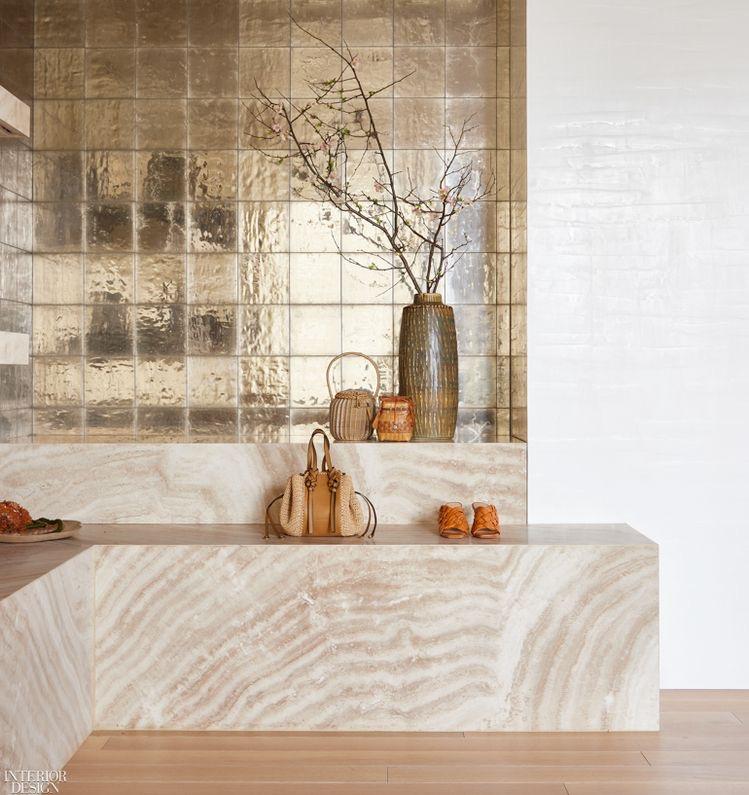
How to Identify Genuine Travertine Marble in Chennai’s Market
When it comes to luxury interiors and timeless elegance, Travertine Marble in Chennai has become one of the most sought-after materials among homeowners, architects, and builders. Its soft texture, earthy tones, and natural patterns bring a sense of sophistication to both modern and classic spaces. However, with the rising demand, the market has also seen a surge in imitation products. Identifying genuine travertine marble can be challenging — especially for first-time buyers.
In this guide, we’ll help you understand how to recognize authentic travertine marble, what makes it unique, and how to ensure you’re investing in the real deal.
1. Understanding Travertine Marble
Travertine is a natural stone formed by mineral deposits from hot springs and limestone caves. It’s part of the limestone family but stands out for its distinctive porous surface and natural veining. Typically available in warm shades of beige, cream, gold, and silver, travertine adds warmth and texture to any interior.
In Chennai, travertine marble is popularly used for flooring, wall cladding, countertops, and facades. Its natural charm and subtle beauty make it a preferred alternative to traditional Italian or Indian marbles.
2. The Popularity of Travertine Marble in Chennai
The demand for travertine marble in Chennai has grown steadily due to the city’s expanding real estate market and luxury housing trends. Builders and designers prefer it for its versatility and ability to complement both traditional South Indian architecture and contemporary designs.
However, this popularity has also led to an influx of synthetic and low-grade alternatives being sold as “travertine.” Many local traders mix marble dust or resin-based materials to mimic the look of natural travertine. Hence, knowing how to tell the difference is crucial.
3. Key Signs of Genuine Travertine Marble
Here are some practical ways to identify authentic travertine marble and avoid costly mistakes:
a. Check the Surface Texture
Genuine travertine has a naturally porous surface with small pits and holes that are sometimes filled during processing. The texture feels organic and irregular — unlike polished imitations, which often feel overly smooth or plastic-like.
b. Examine the Veining and Patterns
Each slab of real travertine marble is unique. The patterns are naturally formed by mineral deposits, resulting in random but elegant veins and swirls. Fake or composite materials, on the other hand, often have repetitive or symmetrical designs printed on the surface.
c. Color Variation
Authentic travertine comes in subtle color variations ranging from ivory and beige to walnut and silver-grey. Artificial travertine usually displays uniform coloring without the gentle transitions seen in natural stone.
d. Weight and Density
Travertine marble is heavier than ceramic or engineered stone. You can feel the difference by lifting a piece — genuine travertine has a solid, dense feel, while fake materials are often lighter.
e. Water Absorption Test
Travertine is slightly porous, meaning it will absorb water to a small extent. You can sprinkle a few drops of water on the surface — if it’s absorbed slowly and darkens the spot, it’s likely real. If water beads up and stays on the surface, it may be synthetic.
4. Verify the Source and Supplier
When purchasing travertine marble in Chennai, always buy from a reputed supplier or authorized distributor. Reliable dealers will provide details about the marble’s origin — whether it’s imported from Turkey, Italy, or Iran — and may offer certification of authenticity.
Visit established showrooms that specialize in natural stones rather than general tile stores. Trusted suppliers will allow you to inspect full slabs and explain the grading, finish options (like honed, polished, or tumbled), and proper maintenance techniques.
5. Price as a Quality Indicator
While price alone shouldn’t determine authenticity, extremely low prices are often a red flag. Genuine travertine marble, especially imported varieties, involves high transportation and processing costs. If a supplier offers it at a suspiciously cheap rate, it might be a composite or ceramic replica.
Always compare prices among multiple authorized dealers in Chennai to understand the current market range.
6. Professional Inspection and Installation
Even if you identify a genuine slab, proper installation and sealing are vital to maintain its durability. Hire experienced professionals who specialize in natural stone work. They will ensure the surface is correctly sealed to prevent stains and that the veining is aligned aesthetically across the area.
7. Maintenance Tips for Longevity
Genuine travertine marble can last for decades with simple care:
-
Use a pH-neutral cleaner to avoid damaging the surface.
-
Reseal the marble every few years to protect it from moisture and stains.
-
Avoid harsh chemicals and acidic cleaners.
-
Use mats or rugs in high-traffic areas to preserve the finish.
Conclusion
Choosing genuine travertine marble in Chennai is not just about aesthetics — it’s an investment in natural beauty and long-term durability. By paying attention to details like texture, veining, and supplier credibility, you can confidently select authentic travertine that enhances your interiors for years to come.
If you’re looking to buy premium-quality travertine in Chennai, always partner with trusted suppliers who specialize in natural stones and offer genuine certification. With the right knowledge and care, travertine marble can transform your space into a work of art that truly stands the test of time.



